第17章
We had much trouble with our heroine. Brown wanted her ugly.
Brown's chief ambition in life is to be original, and his method of obtaining the original is to take the unoriginal and turn it upside down.
If Brown were given a little planet of his own to do as he liked with, he would call day, night, and summer, winter. He would make all his men and women walk on their heads and shake hands with their feet, his trees would grow with their roots in the air, and the old cock would lay all the eggs while the hens sat on the fence and crowed. Then he would step back and say, "See what an original world I have created, entirely my own idea!"There are many other people besides Brown whose notion of originality would seem to be precisely similar.
I know a little girl, the descendant of a long line of politicians.
The hereditary instinct is so strongly developed in her that she is almost incapable of thinking for herself. Instead, she copies in everything her elder sister, who takes more after the mother. If her sister has two helpings of rice pudding for supper, then she has two helpings of rice pudding. If her sister isn't hungry and doesn't want any supper at all, then she goes to bed without any supper.
This lack of character in the child troubles her mother, who is not an admirer of the political virtues, and one evening, taking the little one on her lap, she talked seriously to her.
"Do try to think for yourself," said she. "Don't always do just what Jessie does, that's silly. Have an idea of your own now and then. Be a little original."The child promised she'd try, and went to bed thoughtful.
Next morning, for breakfast, a dish of kippers and a dish of kidneys were placed on the table, side by side. Now the child loved kippers with an affection that amounted almost to passion, while she loathed kidneys worse than powders. It was the one subject on which she did know her own mind.
"A kidney or a kipper for you, Jessie?" asked the mother, addressing the elder child first.
Jessie hesitated for a moment, while her sister sat regarding her in an agony of suspense.
"Kipper, please, ma," Jessie answered at last, and the younger child turned her head away to hide the tears.
"You'll have a kipper, of course, Trixy?" said the mother, who had noticed nothing.
"No, thank you, ma," said the small heroine, stifling a sob, and speaking in a dry, tremulous voice, "I'll have a kidney.""But I thought you couldn't bear kidneys," exclaimed her mother, surprised.
"No, ma, I don't like 'em much."
"And you're so fond of kippers!"
"Yes, ma."
"Well, then, why on earth don't you have one?""'Cos Jessie's going to have one, and you told me to be original,"and here the poor mite, reflecting upon the price her originality was going to cost her, burst into tears.
The other three of us refused to sacrifice ourselves upon the altar of Brown's originality. We decided to be content with the customary beautiful girl.
"Good or bad?" queried Brown.
"Bad," responded MacShaughnassy emphatically. "What do you say, Jephson?""Well," replied Jephson, taking the pipe from between his lips, and speaking in that soothingly melancholy tone of voice that he never varies, whether telling a joke about a wedding or an anecdote relating to a funeral, "not altogether bad. Bad, with good instincts, the good instincts well under control.""I wonder why it is," murmured MacShaughnassy reflectively, "that bad people are so much more interesting than good.""I don't think the reason is very difficult to find," answered Jephson. "There's more uncertainty about them. They keep you more on the alert. It's like the difference between riding a well-broken, steady-going hack and a lively young colt with ideas of his own. The one is comfortable to travel on, but the other provides you with more exercise. If you start off with a thoroughly good woman for your heroine you give your story away in the first chapter. Everybody knows precisely how she will behave under every conceivable combination of circumstances in which you can place her.
On every occasion she will do the same thing--that is the right thing.
"With a bad heroine, on the other hand, you can never be quite sure what is going to happen. Out of the fifty or so courses open to her, she may take the right one, or she may take one of the forty-nine wrong ones, and you watch her with curiosity to see which it will be.""But surely there are plenty of good heroines who are interesting,"I said.
"At intervals--when they do something wrong," answered Jephson. "Aconsistently irreproachable heroine is as irritating as Socrates must have been to Xantippe, or as the model boy at school is to all the other lads. Take the stock heroine of the eighteenth-century romance. She never met her lover except for the purpose of telling him that she could not be his, and she generally wept steadily throughout the interview. She never forgot to turn pale at the sight of blood, nor to faint in his arms at the most inconvenient moment possible. She was determined never to marry without her father's consent, and was equally resolved never to marry anybody but the one particular person she was convinced he would never agree to her marrying. She was an excellent young woman, and nearly as uninteresting as a celebrity at home.""Ah, but you're not talking about good women now," I observed.